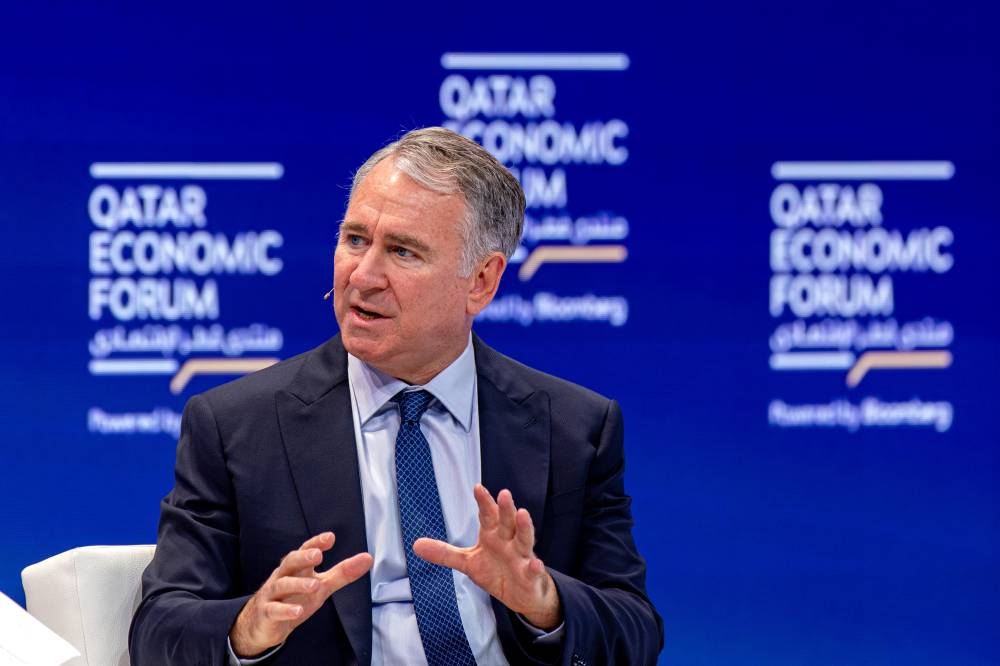
Ken Griffin, chief executive officer and founder of Citadel Advisors, at the Qatar Economic Forum (QEF) in Doha on Tuesday.
Ken Griffin, chief executive officer of $63bn hedge fund Citadel, said the Biden administration’s decision to freeze permitting on new liquefied natural gas export projects is an “incoherent” economic policy.
Countries looking to use more gas — which would help reduce global coal usage and carbon emissions — would benefit from having both the US and Qatar as reliable sources of the fuel, Griffin said.
“If you want a country to base its economy on natural gas, they’re going to want two suppliers,” Griffin said during the Qatar Economic Forum in Doha on Tuesday. “It’s not a win-lose dynamic between the United States and Qatar. It’s a win-win.”
Griffin also founded Citadel Securities, a global market-making business. The 55-year-old has a net worth of more than $38bn, according to the Bloomberg Billionaires Index.
As sovereign wealth funds in the Middle East hunt for money managers that will invest their vast troves of money, Griffin said they should be looking for asset managers that align with their interests rather than try to win their business with “superficial” offerings like low fees.
“Simply put, Coca-Cola doesn’t publish its recipe on the web,” Griffin said. “When you’re going to pick a brain surgeon, do you find the doctor with the lowest fees?”
Citadel has yet to establish a major presence in the Middle East unlike peers that have made a beeline for the region in the hopes of capturing more of the trillions of dollars in capital that the Gulf sovereign wealth funds are sitting on.
Brevan Howard Asset Management, for instance now manages more money from the emirate than it does anywhere else on the planet. Izzy Englander’s Millennium Management set up in Dubai recently and now has a staff of more than 70, while Balyasny Asset Management aims to double its 12-person workforce in the emirate.
Citadel recently analysed the footprint of its peers across the region, Griffin said.
For him, a key issue when it comes to expanding anywhere is talent. Countries often try to lure top hedge funds by having very attractive tax regimes that might attract a handful of senior portfolio managers but fail to draw in the analysts and the associates who support their day-to-day work in the markets, Griffin said.
“One of the reasons that I think Citadel has been so successful is the intense collaboration that we have within our four walls,” Griffin said. “Having a PM located in a low-tax jurisdiction on Zoom intermittently with a team back in London — that’s not a winning formula.”
